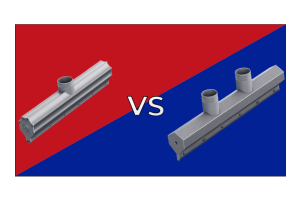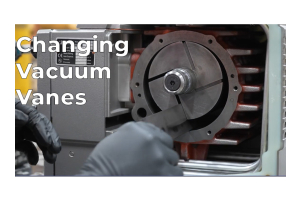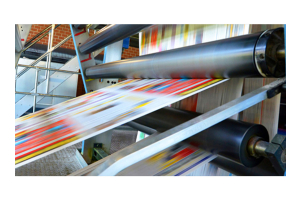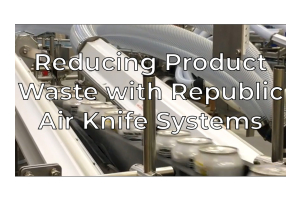Oil-Lubricated vs. Dry Vacuum Pumps – Choosing the Right Solution for Your Industry

Vacuum pumps play a crucial role in industrial applications, providing the necessary pressure and airflow for processes like material handling, packaging, drying, and testing. Two of the most common types of vacuum pumps are oil-lubricated and dry vacuum pumps. Both offer unique advantages, making them suitable for different industries and applications.
Understanding Oil-Lubricated Vacuum Pumps
How They Work
Oil-lubricated vacuum pumps use oil to create an airtight seal, ensuring smooth operation and consistent vacuum performance. The oil also acts as a coolant, preventing overheating and reducing wear on internal components.
Key Advantages
- High Vacuum Levels: Oil-lubricated pumps generate deeper vacuum levels, making them ideal for applications requiring precise pressure control.
- Cooler Operation: The presence of oil helps absorb and dissipate heat, allowing for extended run times.
- Durability: With proper maintenance, these pumps have a long operational life and can withstand heavy-duty use.
Best Industry Applications
- Manufacturing & Plastics: Supports injection molding and forming by creating the necessary vacuum for shaping materials.
- Medical & Pharmaceutical: Used for sterilization, laboratory vacuum applications, and medical suction systems.
- Food Processing & Packaging: Ensures airtight sealing in vacuum packaging to extend product shelf life.
- Printing & Paper: Provides a reliable vacuum hold-down for high-speed printing and paper handling.
Understanding Dry Vacuum Pumps
How They Work
Dry vacuum pumps operate without oil, using self-lubricating materials or air movement to create vacuum pressure. This oil-free design makes them environmentally friendly and minimizes maintenance needs.
Key Advantages
- Oil-Free Operation: No risk of oil contamination, making them ideal for clean environments.
- Low Maintenance: Without oil, there are fewer components to service, reducing downtime and operational costs.
- Compact & Energy-Efficient: Many dry pumps have a smaller footprint and require less energy compared to oil-lubricated alternatives.
Best Industry Applications
- Electronics & Semiconductor: Used in chip manufacturing and circuit board production to avoid contamination from oil mist.
- Medical & Laboratory: Provides clean vacuum pressure for precise research and sterilization processes.
- Aerospace & Automotive: Supports component testing and drying with high reliability.
- Food & Beverage: Maintains a hygienic processing environment by ensuring oil-free air purity.
Comparing Oil-Lubricated vs. Dry Vacuum Pumps
| Feature | Oil-Lubricated Vacuum Pump | Dry Vacuum Pump |
|---|---|---|
| Operation | Uses oil for sealing and lubrication | Oil-free, self-lubricating or air-driven |
| Vacuum Level | Higher, ideal for deep vacuum needs | Moderate, ideal for clean applications |
| Maintenance | Requires oil changes & filter replacements | Low maintenance, no oil changes |
| Cleanliness | Potential oil mist (with filtration) | 100% clean, no contamination |
| Best for | Manufacturing, packaging, medical | Electronics, food, research, cleanrooms |
Choosing the Right Pump for Your Industry
Selecting the right vacuum pump depends on several factors, including:
- Vacuum Level Requirements: If your process demands deep vacuum pressure, an oil-lubricated pump is often the better choice.
- Cleanliness Standards: Industries that require a contamination-free environment, such as electronics and pharmaceuticals, benefit from dry vacuum pumps.
- Maintenance Considerations: If you need a low-maintenance option, dry pumps eliminate the need for oil changes and regular filter replacements.
- Operating Costs: Oil-lubricated pumps have higher maintenance needs, while dry pumps reduce ongoing operational costs.
By evaluating these factors, businesses can make an informed decision that enhances their process efficiency and equipment longevity.
Both oil-lubricated and dry vacuum pumps offer valuable benefits, depending on the application. Choosing the right pump ensures efficiency, reliability, and long-term cost savings. If you’re unsure which vacuum pump best suits your needs, consulting with experts can help you determine the ideal solution for your industry. Contact us today for more information!






